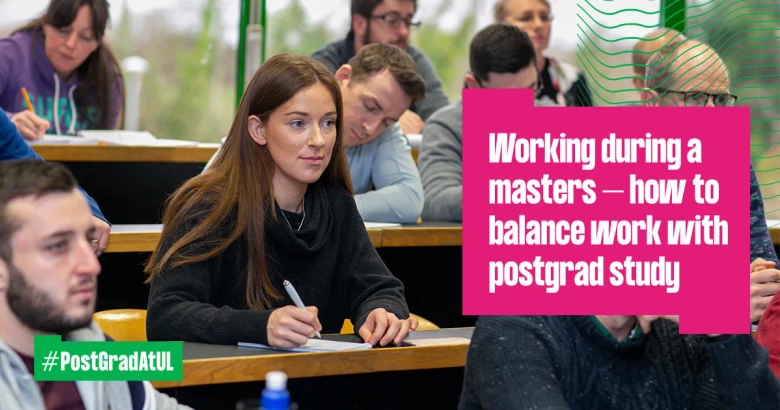UL - Working during a masters – how to balance work with postgrad study
Last updated: 25 Jan 2023, 13:34
Can you manage your work-study-life balance? That’s the big question for thousands of postgraduate students in Ireland who take on the challenge of studying while working every year.

